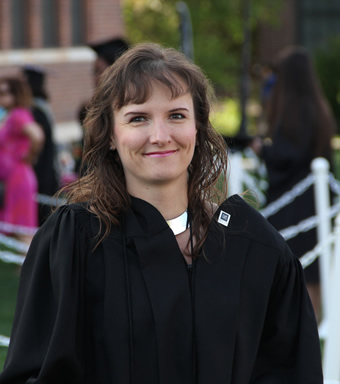Book Alert! Paperback now Available under $30!! Order NASA and the Long Civil Rights Movement now! Link My essay “Petite Engineer Likes Math, Music” is in this collection.
Academic fields of Interest: 20th Century US history, space history. History of Science and science education. Cold War history. Currently researching NASA’s role in science education in the Spacemobile program, 1960s to 2010s.
Writing Department TA Instructor, 2022/2023, Fall 2023, Winter 2024
Center for Cold War Studies, 2022 Fellow.
Summer 2019, and Winter, Spring and Summer 2020 RA for What Every1 Says, We1s, A 4Humanities Project. Website Here.
Spacemobile – NASA Stakes its Claim on American Science Education, 1961-2014
Co-advised by Profs. Alice O'Connor and Salim Yaqub
“Petite Engineer Likes Math, Music” in NASA and the Long Civil Rights Movement. Edited by Brian C. Odom and Stephen P. Waring. University of Florida Press. (2019)
History
Writing
Reader for History 166C: United States in the Twentieth Century (The Sixties)
Discussion Labs for History 2A World History
Discussion Labs for History 2C World History
Discussion Labs for History 4B Medieval and Early Modern Europe
Discussion Labs for History 4C Modern Europe
Discussion Labs for History 5 History of the Present
Discussion Labs for History 7 Great Issues in the History of Public Policy
Discussion Labs for History 17A The American People, 1492 – 1837
Discussion Labs for History 17C The American People – WWI to Present
Discussion Labs for History W2A
TA & Associate Instructor for Writing 2
Awards:
2024/2025 History of Science Society/NASA Fellowship in Aerospace History
2024 John Coleman Award, UCSB Dept. of History for “Spacemobile Goes Abroad – NASA’s Cold War Science Education Diplomacy, 1962 – 1969″
2023 UCSB Academic Senate Graduate Travel Grant
American Institute of Physics, Grant-in-Aid, 2022. Spacemobile research.
Presentations:
Fall 2024: “NASA’s Portrayal of Science, Technology, Humanity and the Earth: Space Science Education for Domestic and Foreign Audiences in the 1960s”
Science, Technology, Humanity, and the Earth. 11th ESHS Conference, 4-7 September 2024. UPF Campus de la Ciutadella, Carrer de Ramon Trias Fargas, Barcelona, Spain. Research Talk.
Spring 2024: “NASA’s Other Science Diplomacy – Spacemobile Goes Abroad in the 1960s” – APS April Meeting 2024, Sacramento CA, April 3 – 6, 2024. Session: Science Across Borders. Invited talk.
Summer 2023: “Spacemobile Goes Abroad – NASA’s Cold War Science Education Diplomacy, 1962-1965,” at the Fifth Biennial Early-Career Conference for Historians of the Physical Sciences in Copenhagen, Denmark on August 31 – September 3. Research talk.
Glendale Community College Science Lecture Series, Spring 2023. “Petite Engineer Likes Math, Music – NASA Women at Work in the 1960s”. March 28, 2023. Invited talk.
Spacemobile: NASA’s Entrance into American Science Education. History of Education Society’s Annual Meeting, Nov. 4-7, 2021. San Diego, CA. Research talk.
Spacemobile: NASA as a Science Educator and Popularizer. Science History Institute, https://www.sciencehistory.org/conferences/pedagogy-popularization-and-the-public-understanding-of-science. Oct. 23, 2020. My talk starts at 5:31:03 here.
NASA and the Long Civil Rights Movement. Edited by Brian C. Odom and Stephen P. Waring. University of Florida Press (2019) received the 2019 Eugene M. Emme Astronautical Literature Award from the American Astronautical Society. Announcement found here.
American Historical Association – Member
History of Education Society – Member
History of Science Society – Member
Dissertation Abstract
As a foray into the institutional history of the NASA Educational Programs Division, this dissertation will examine how science popularization and public education permeated NASA’s efforts to increase the public understanding of space science at home and abroad; build public and federal support for the agency; increase America’s science and engineering workforce and meet the demands of Cold War political economy. In so doing, I will examine the records of the NASA Educational Programs Division and NASA field centers, the U.S. Department of Education and related federal and state agency records, memoirs and oral histories of Spacemobile participants, and records of professional science education groups, and conduct oral histories with select individuals from among these groups. My research will show how NASA shaped public science education in the 20th century with the Spacemobile program and how the Educational Programs Division, in turn, was shaped by the demands of its stakeholders in a mutually constitutive process that until now has not been fully examined. I argue that the Educational Programs Division, and thus NASA as an institution, benefited for decades from the synergy between public science and public education, which bolstered its place in national life. In fact, one of the largest and most popular federal agencies of the twentieth century was, perhaps too quietly, supported by a placeless, transient and mobile program that allowed the agency to bridge the distance between itself and the American people. Thus, the Educational Programs Division contributed to the acceptance of NASA as a resource for public science education that continues to this day.

